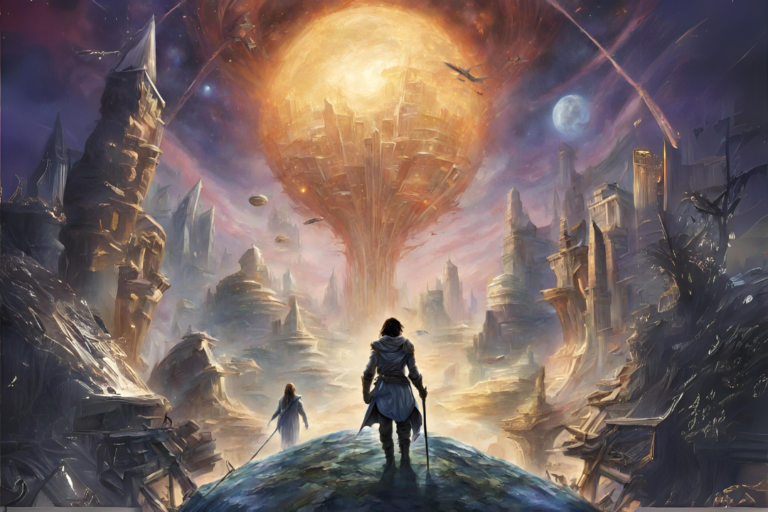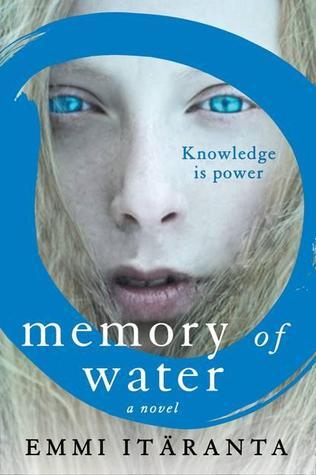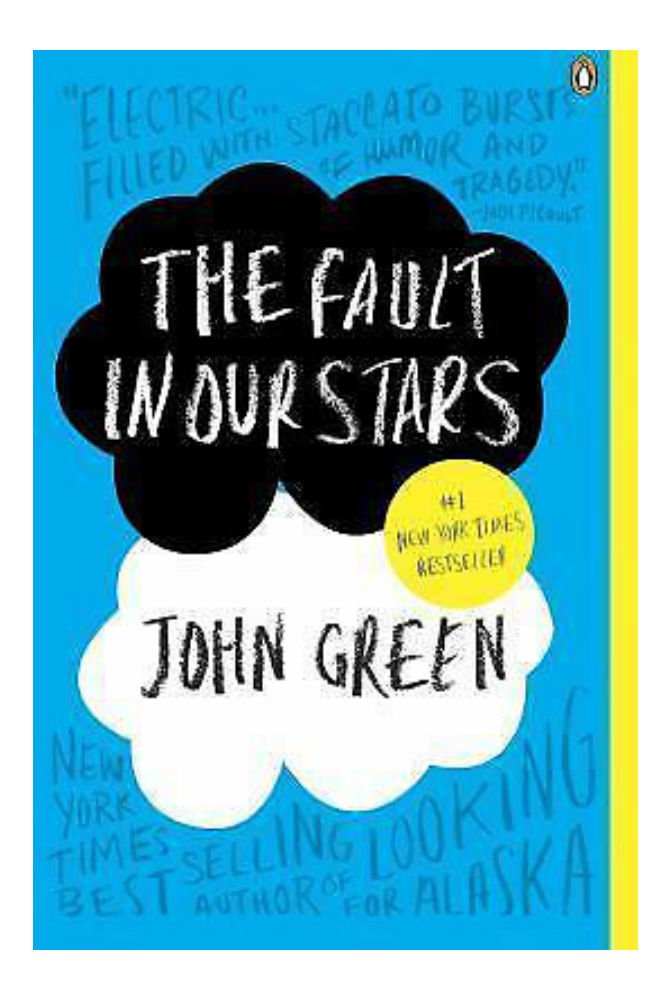Posted Blog Beats Beyond the Veil: An In-Depth Look at Arcane Magic in Fiction. Share on Facebook Tweet Subscribe Save

Character Journeys:
Exploring Character Arcs in SFF Worlds
Let’s take a look at the character arc in 3 novels that became massive hits.
- Frank Herbert’s Dune has Paul Atredes, the son of Duke Leto Atreides and Lady Jessica, begin his external arc as a young nobleman and move to become the leader of the desert Fremen and the ruler of Arrakis. His internal struggle is a transformation of self-discovery, and the struggle with destiny and power to become a figure of immense influence and significance, leaving a lasting legacy on the world of Arrakis and the universe beyond.
Silly question but what was the intent of the author Frank Herbert?
Frank Herbert explores themes of power, destiny, and the consequences of one’s choices. Perhaps he was trying to identify the idea that individuals have the power to shape their destinies, but this power comes with great responsibility and the potential for unintended consequences. Think of people like Gandhi, Erin Brockovich, Steve Jobs, Nelson Mandela, and Marie Curie.
Another theme that reaches out from Dune is the exploration of environmentalism and ecology. Dune is set on a desert planet where water is so scarce, death is considered valued as to your body’s water. Paul, who becomes the Kwisatz Haderach, is said to soon transform Arrakis into a paradise. Think of books like Enders Game by Orson Scott Card where all training is performed in space. Memory of Water by Emmi Itäranta (2014) is a speculative fiction novel set in a future world where water scarcity is a major concern due to climate change. The Wall by John Lanchester (2019) is set in a dystopian future where a massive wall is constructed to protect society from rising sea levels and climate-related threats.
Lastly, to discuss, but not the last theme Frank Herbert explores, is the theme of human nature. Paul battles all sorts of internal struggles for ambition, fear, and the pursuit of power. The author may have intended to provoke readers to reflect on their own ethical choices and the nature of good and evil. Additional novels that explore human nature are Hyperion by Dan Simmons and The Lathe of Heaven by Ursula K. Le Guin.
- C.S. Lewis’ The Chronicles of Narnia is a beloved series of fantasy that follows the adventure of children who discover the magical land of Narnia, filled with talking animals, mythical creatures, and epic battles between good and evil. One of the children Lucy Pevensie, the youngest of the Pevensie siblings, is the first to discover the magical wardrobe that leads to Narnia. She is known for her kindness, bravery, and unwavering faith in Aslan. She trusts in Aslan’s guidance and wisdom, which often leads her to important discoveries and helps her navigate the challenges she faces. Her character growth leads her from a curious and adventurous young girl into a courageous and compassionate heroine guided by faith and inner strength.
C.S. Lewis wrote in his novel’s universal themes such as courage, loyalty, sacrifice, redemption, and the struggle between good and evil. He also let his novels serve as a vehicle for conveying Christian themes and values to readers in an accessible and imaginative way with Christian theology and biblical stories. Aslan the lion represented Jesus Christ and various characters and events reflecting biblical motifs throughout. Additional novels that explore faith and universal themes are The Mote in God’s Eye by Larry Niven and Jerry Pournelle and The Hunger Games trilogy by Suzanne Collins.
Lewis believed in the power of imagination to awaken a sense of wonder and curiosity in readers. Through the vivid descriptions of Narnia and its inhabitants, he aimed to inspire readers to use their imaginations and engage with the magical world he created. J.K. Rowling’s Harry Potter Series and The Golden Compass by Philip Pullman both have vivid descriptions of their respective worlds.
Amid the world war challenges and uncertainties, Lewis intended for Narnia to serve as a refuge—a place of escape and comfort where readers could experience moments of joy, hope, and enchantment. Other books of escapism are Stardust by Neil Gaiman, and Ready Player One by Ernest Cline.
- David Eddings’s The Belgariad is a classic epic fantasy that follows the farm boy Garion as he discovers his destiny to battle the dark god Torak and save the world of Belgarion from destruction. Initially, he is a farm boy forced to travel as a reluctant hero, who becomes the heir of Riva, the rightful bearer of the Orb. He becomes the pivotal figure in the struggle between light and darkness.
What was the intent of the author David Eddings?The series delves into themes of destiny, identity, and the struggle between good and evil. Eddings may have intended to explore how individuals navigate their destinies and grapple with questions of identity and purpose. Another novel like this might be The Golem and the Jinni by Helene Wecker.
David Eddings liked to explore themes of moral lessons. Through the characters’ experiences and choices, he may have intended to convey messages about courage, friendship, sacrifice, and the consequences of one’s actions. Other books, while not exactly SFF would certainly qualify for these characters’ struggles like Liesel Meminger from The Book Thief by Markus Zusak or the struggle of Hazel Grace Lancaster in The Fault in Our Stars by John Green.Essentially, I believe David Eddings loved the theme of escapism. He loved to provide an immersive and entertaining escape into a fantastical world filled with magic, adventure, and intrigue. He loved to write classic epic fantasy narratives that entertain readers with adventurous plots, rich world-building, and memorable characters. Other authors that took on this theme would include J.R.R. Tolkien, George R. R. Martin, Robin Hobb, Patrick Rothfuss, Brandon Sanderson, and a couple of my favorites Robert Jordon and Anne McCaffrey.
So, when we look at an author’s intent, we can see there are themes that these authors intended to provide. And as you write your novel, series, space opera, dystopian, comic cone-head thriller, remember the themes you are working toward. Whether your MC time travels in a telephone booth or turns the sand dial over to slow time or reverse it, we know we have some author-isms that we are trying to speak in our writing. Make sure you own it.
My debut novel Drayton’s Discoveries, for sale now on Amazon or read with a subscription to Kindle Unlimited, explores themes of greed, exploration, colonization, and of course love. Here is a sample:
Jor dropped the tablet onto her bag when she heard the double click on her comm. Almost instantly, the harness lift began to hum with activity. It had been over two hours since the last check-in, and her nerves were just about shot. She imagined all sorts of scenarios and none of them positive. A cave-in, an explosion, a boulder rolling over him, all ensuring Herman was unsafe and injured, without her help. She rushed to the access hole to look down inside but could see nothing. Holding onto one of the tripod legs to keep herself from jumping downward, she impatiently waited for the person currently cycling upward on the lift. As the gray-haired figure came into view, Jor couldn’t suppress the half-sob and a huge smile of relief. She reached over to secure his line and their eyes met.
Drayton smiled; his blue eyes sparkling. He released a half-laugh of almost giddiness when Jor returned his smile with a brilliant one of her own. His hand reached out to clasp her arm and his expression held more than affection. He grabbed the tripod with his other hand and heaved himself onto the surface, while Jor drank in the sight of him in full health.
She covered his hand with her own and searched his face for any pain or stress. Finding none, she reached up and ran her trembling fingers down his cheek. “What took you so long?” she whispered, with a hitch in her breath. She shifted to blend in with the surrounding rock face, a beige and rose color that looked entirely normal for any human, but for her, she seemed pale. The worry in her wide eyes held a fear he’d never seen.
Herman leaned closer and brought them together. He wrapped his arms around her smaller form and felt her body mold into his. They both released a deep satisfying breath.
Jor laid her head against his chest and listened to his strong heart beating.
Herman felt her warmth and let his eyes close to fully revel in the sensation. “I’ll tell you over the next fifty years.” He murmured.
For those trying the writing game, I want to give a quick shout-out to PLOTTR software. I’ve found it has really improved my writing game and increased my efficiency tremendously. It is my new favorite writing aid. Use any of my affiliate links below and I might get a small commission. Thanks.
Check out my YouTube channel for PLOTTR videos @jlnichauthorsff
Joseph Michael’s Learn Scrivener Fast e-course
Please read and review my serial publishing novel, Sparrow’s Legacy, on Kindle Vella. You can read the first three chapters free on Amazon by searching for “Sparrows Legacy Kindle Vella” or clicking here. I. Please subscribe to my website if you want to be notified when I’ll be publishing or to get free samples of my work.
JL Nich, Science Fiction Fantasy Author


